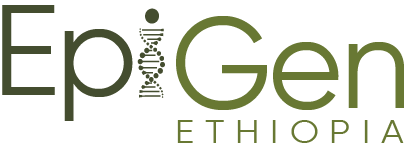
About
EpiGen Ethiopia
Home | About
EpiGen project’s multi-disciplinary consortium is drawn from several institutions from Ethiopia engaged in National Public Health Programs, and EU partners. Overall, the model approach proposed by EpiGen will enhance Ethiopia’s national effort in mitigating the threat of infectious diseases. The implementation of a national genomic-informed surveillance for infectious diseases will play a significant public health role in contributing to disease prevention and control programs in Ethiopia and beyond.
The aim of the EpiGen project is to build capacity for an integrated pathogen genomic surveillance system that can then inform public health decisions. The specific overarching objectives include strengthening the collection and analysis of clinical and epidemiological data, enhancing the capacity and capability for pathogen genomic sequencing, including strengthening the laboratory infrastructure, human workforce, pathogen genomic data analysis, and the integration of metadata with genomic data, developing and implementing innovative digital diagnostic platforms, creating mobile phone applications which update in semi-real time for policy decisions, and promoting communities of practice and knowledge exchange through fostering African collaboration and networking in the domain of pathogen genomic surveillance for infectious diseases.
About Us
The Aim of the EpiGen Ethiopia project
The 21st century witnessed an increased incidence of epidemics (Zika, dengue, Ebola, SARS), with the latest highlight being COVID-19. Following the outbreak of several infectious diseases during the last few decades, the need for generating real-time pathogen genomic data for public health action has become more important than ever. In the African context, infrastructure, human resource capability, data analysis, including bioinformatics, lack of linkage between clinical, epidemiological, and pathogen genomic data as well as the interaction between clinicians, researchers, and decision-makers are some of the major challenges.

The Objectives
To strengthen the collection and analysis of clinical and epidemiological data and clinical samples, including the implementation of translational clinical research demonstrating the application of genomic epidemiology to inform public health decision-making.
To enhance the capacity and capability for pathogen genomic sequencing in Ethiopia, including strengthening the laboratory infrastructure, human workforce, pathogen genomic data analysis, and the integration of metadata with genomic data.
To develop and implement innovative digital diagnostic platforms and create semi-real-time mobile phone applications for public health and policy decisions.
To promote communities of practice and knowledge exchange through fostering African collaboration and networking in the emerging domain of pathogen genomic surveillance for infectious diseases, and thus open important surveillance/research opportunities.

